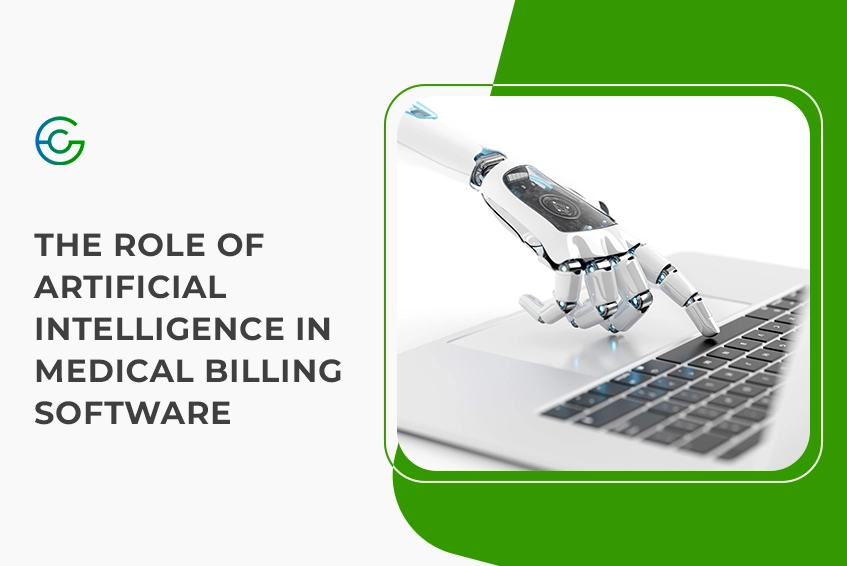
Disclaimer: It's important to be cautious with AI technology, as it is still in its early stages. You should be mindful of the data you input and ensure that the tool you are using is HIPAA compliant. The results you receive should always be verified by a human expert, as AI tools can make mistakes from time to time, which could result in financial losses.
Artificial intelligence (AI) is everywhere, and there are genuine fears that it will one day replace humans in certain jobs. It is not unfounded for medical billers to also fear for what they do.
Will AI replace medical coders? No one can ascertain the future, but there is something about human expertise that no robot or AI can duplicate.
Fortunately, AI can be a tremendous asset in medical coding and the healthcare industry as a whole.
The Connection Between AI and Medical Billing
Instead of fearing AI, the healthcare industry should instead embrace its advancements—AI medical billing could be very helpful for all facilities.
Medical billing is the process of organizing and computing the cost of treatments and procedures. It involves invoicing and submitting claims and refunds to an insurance provider.
AI is the simulation of human intelligence in regular tasks. Medical billing and coding are good examples—certain repetitive or manual tasks can be automated through AI. However, some complex responsibilities, like evaluation, are not something AI can be programmed to do.
As soon as you get past the fear that AI is set to take over people’s jobs, you will realize how beneficial this technology will be in enhancing the work of all medical billers and coders.
AI can be integrated into current medical billing software to minimize the need for manual processes. This will only help billers and coders work faster and more efficiently.
How AI Powers Modern Billing Systems
On average, it takes between 10 and 20 minutes for hospital staff to input medical charges for every patient. It takes time as the medical biller and coder need to process information, identify the relevant codes, and review all existing records. The more treatment and procedures a patient incurs, the longer the billing and coding process can take.
AI could cut this time to at least half. For example, when you type just a few letters or words into the system, the algorithm will immediately understand what you are trying to input.
With these improvements, the billing staff becomes more productive—they can input significantly more patient records within the same time frame. In this particular case, AI could prevent backlogs.
When you upgrade your medical billing software with AI, it’s not just the billing and coding that become more efficient. The entire admin process could very well take advantage of the algorithm benefits.
Advantages of Using AI in Healthcare Facilities
 AI innovations in healthcare can help facilities become more efficient with everyday operations.
AI innovations in healthcare can help facilities become more efficient with everyday operations.
AI could improve every aspect of the healthcare service, including the following:
Appointment Setting
Booking appointments is easier with AI and advantageous for both hospital staff and the patients they serve. AI can improve the process and make it significantly more efficient. The system can find the best time for the patient based on their needs.
For example, a particular patient prefers to book a consultation or treatment in the morning because they work in the afternoon. The algorithm takes this into consideration when providing the patient with schedule options.
Billing and Claims Management
Billing is crucial because it provides the funds that allow the company to serve clients well. And insurance claims are essential elements of medical billing.
According to reports, some 304 million people in the U.S. have some type of insurance. That’s a large majority of the population, which is estimated to be 340 million as of 2023. One can expect that most of the patients going in for consultations and treatments will use their insurance to pay.
AI can help with billing and claims management. It can detect errors that could result in the denial or rejection of insurance claims. Based on historical records, AI can also help prevent mistakes that could lead to rejections.
Reliable medical billing software can already provide the following insurance-related benefits:
- Reduce errors
- Track claims
- Improve reporting
- Better access to patient information
- Streamline coding
- Enhance patient care
With AI, you can automate the claims workflow, speed up the process, improve customer experience, and reduce the risk of fraud.
Upcoming AI Innovations in Medical Billing
 What is the future of AI in medicine? Rest assured, the future of AI in medical billing is not the wholesale replacement of billers and coders. Instead, it will enhance medical billing, coding, and insurance claims. Moreover, it will improve the healthcare industry.
What is the future of AI in medicine? Rest assured, the future of AI in medical billing is not the wholesale replacement of billers and coders. Instead, it will enhance medical billing, coding, and insurance claims. Moreover, it will improve the healthcare industry.
Reduce Operating Expenses
Every business aims to reduce operating expenses to increase profit. And any workplace process is greatly improved when you integrate AI.
Regular or routine tasks can be done automatically, which gives employees more time to focus on more important or complex tasks. The facility can limit manpower in the process and save on employee salaries.
Eliminate Fraudulent Billing
One of the best benefits of AI is that it can detect fraud before it even happens. In most cases, fraud is detected after the fact, which would be hard to correct. It also leads to claim rejections and more severe consequences.
Medical billers and coders may have difficulty detecting potential fraud because they are too busy with their responsibilities. AI can be trained to catch fraudulent patterns and stop them before they occur.
Further Improve Automated Billing
ClaimGenix is medical insurance billing software that is secure, bills multiple payers, and reduces errors in billing and insurance claims. Its benefits can be further enhanced with AI to improve customer experience.

